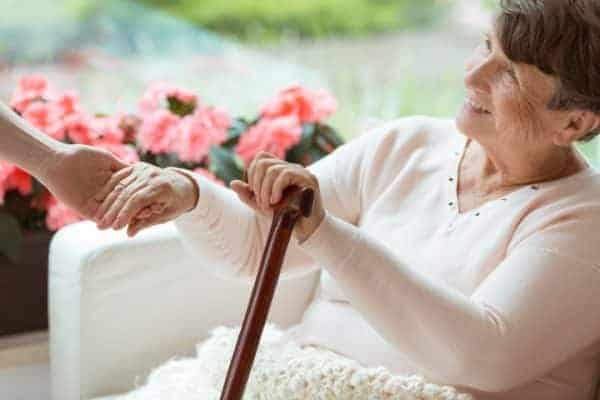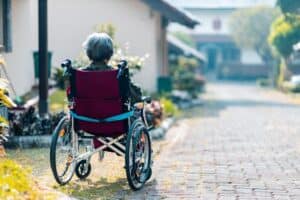Our live-in carers are a vital part of the British social and health care system and the work they do within the homes of the most vulnerable and elderly helps people maintain their independence for many years longer than would be otherwise possible.
However, having a live-in carer shouldn’t mean that a person has to become totally dependent. A live-in carer can help people to not only stay in their homes but maintain a more independent life by supporting them in using products and tools.
In the Kitchen
Cooking is one of the UK’s favourite pastimes – you only need to turn on the TV to see how popular it is, with shows on how to cook, cooking chat shows such as Sunday Brunch, celebrity baking shows, Masterchef, British Bake Off to name but a few. We love to cook! But as we get old the kitchen can become more challenging, especially if arthritis starts affecting the hands. So equip the kitchen with simple kitchen aids such as jar and bottle openers, non-slip food mats and arthritis friendly cutlery.
In the Lounge
The lounge is a place to relax and rest, and it is often a surprise to able-bodied people that as we get older the simple pleasure of sitting on an armchair can become a huge struggle. While there are devices for carers to help people into and out of armchairs, a good lift chair allows people to use their lounge independently.
Once on their feet it is often a good idea to use an indoor walking frame to reduce risk of falls. A basic zimmer frame is suitable, but a rollator with wheels, or a trolley, is a great way to encourage elderly people to get around the house safely.
In The Garden
If you are lucky enough to have a garden it can bring so much joy. There is always a lot of work to be done too. Reduced mobility and arthritis obviously makes gardening very difficult but there are a range of garden tools that are designed to make gardening possible again, including long handled tools to allow gardening from a chair, and specialist ergonomic hand tools for those with arthritis and poor wrist strength.
In the Bedroom
We spend a lot of time in our bedrooms so it is important that the bedroom is comfortable, accessible and easy to keep clean and hygienic. Many elderly people suffer from incontinence while sleeping, so it is important to invest in some waterproof bedding and bed pads. A commode can be very useful if a person will often wake just before they need to go to the toilet – it is especially useful if there is not a bathroom near to the bedroom.
Of course, few bedrooms have a basin these days and hand washing is so important to avoid picking up germs and bacteria, so always have some hand sanitiser close by for those emergency trips to the commode at night.
In the Bathroom
There’s a range of devices designed to make using the toilet easier, from basic seat raisers that mean you do not need to bend so low to sit on the toilet, toilet frames and grab bars to provide better support, to mechanical lifts. You can get lifts for both the toilet and the bath that provide people with a high level of independence.
Both live-in carers and customers benefit when a few tools and devices are put in place to give more independence to the patient, and it can help to form a stronger relationship as more time can be spent on doing things together, such as cooking and gardening, if toileting and getting up from armchairs can be done independently. None of the mobility devices are essential when you have a live-in carer, but they can all help people live a little more comfortably and independently.





